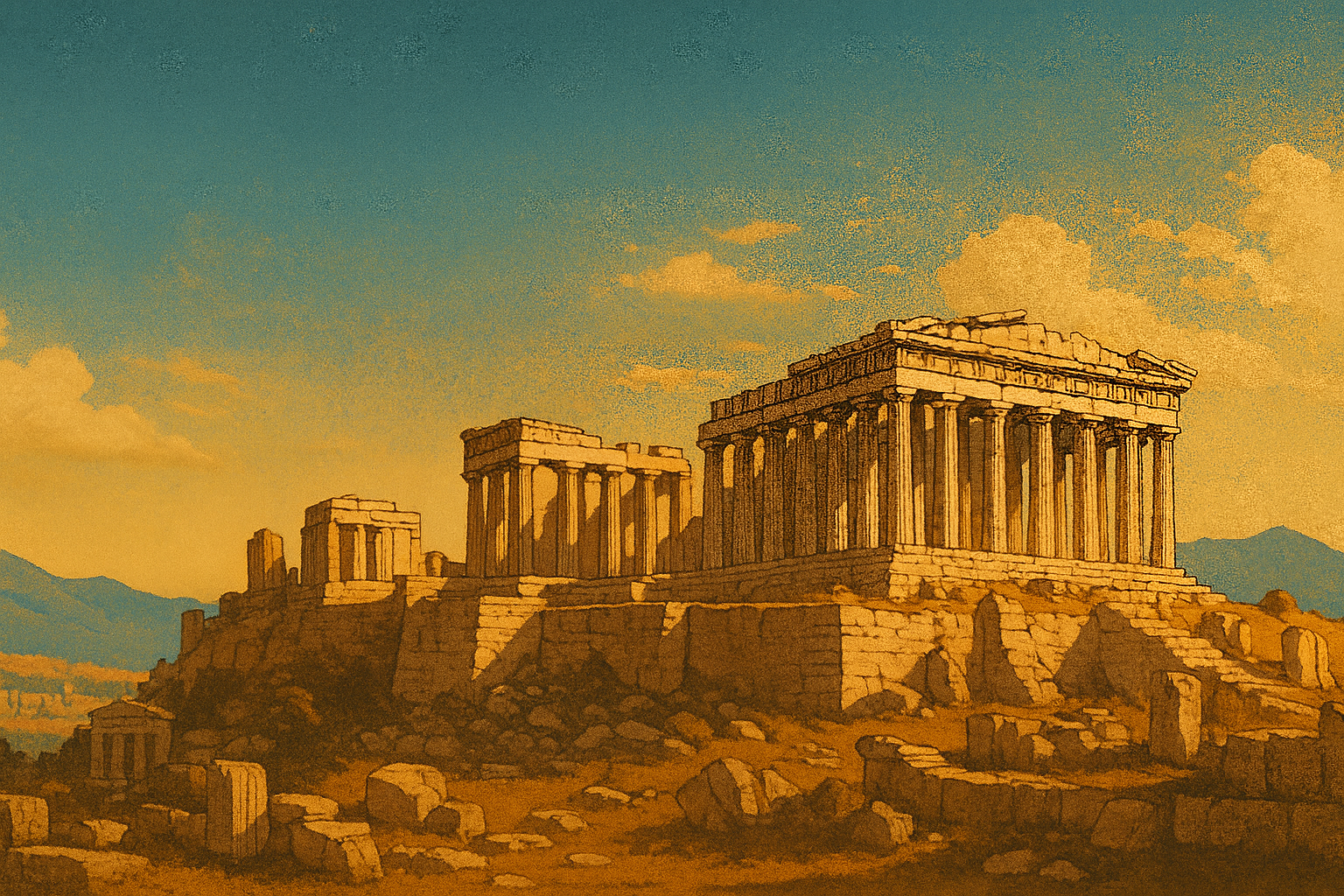How Greece Fell: Pride, Politics, and the Long Road to Rome
Everyone loves to romanticize ancient Greece — democracy, marble statues, feta for days. But behind the glory was a messy reality: rival cities, endless wars, and egos the size of Mount Olympus. The truth of how Greece fell isn’t about one grand defeat — it’s the story of a nation too proud, too divided, and too human to hold itself together.
The City-States: Brilliant but Impossible to Manage
Before the fall came the brilliance. The Greek city-states — Athens, Sparta, Corinth, Thebes — were cultural powerhouses, each with its own flavor. Athens gave us philosophy and democracy. Sparta gave us abs and military discipline. Corinth gave us trade, art, and probably a few good scandals.
Together, they built the foundation of Western civilization. Separately, they built the world’s longest-running argument.
When Unity Wasn’t the Vibe
The problem? Too many leaders, not enough listeners. The Peloponnesian War between Athens and Sparta (431–404 BCE) left Greece drained and divided. Wealth gaps widened, citizens rebelled, and everyone thought they were right — a national pastime that still thrives today.
Political alliances shifted constantly, loyalty lasted about as long as a frappe in the sun, and by the time anyone realized how much damage had been done, it was too late to patch the cracks.
Macedon Moves In
While the city-states bickered, Philip II of Macedon quietly built something stronger. He unified Greece the hard way — through strategy, diplomacy, and a few decisive battles. By 338 BCE, at the Battle of Chaeronea, the southern city-states were officially under Macedonian rule.
Then came Alexander the Great, the ultimate overachiever. He took Greek culture on a world tour — from Egypt to Persia and beyond — spreading Hellenic ideas faster than you can say “Eureka.”
But after his death, the empire fractured again. The brilliance stayed, but the unity didn’t.
The Roman Encore
By the time Rome showed up, Greece was politically tired and perpetually mid-argument. The Romans didn’t need to conquer a strong enemy — just a brilliant, divided one.
The Battle of Cynoscephalae (197 BCE) and Battle of Corinth (146 BCE) sealed the deal. Greece became a Roman province, its independence gone — but its influence only grew stronger.
Rome absorbed Greek art, architecture, and philosophy. In losing power, Greece became eternal — woven into every corner of Western culture that followed.
Lessons from the Fall
So, how did Greece fall? Not from weakness, but from pride. The same fiery independence that built the Parthenon also tore the nation apart. It’s a reminder that genius without collaboration eventually collapses under its own weight.
And yet — even in defeat — Greece remained the teacher. Rome may have conquered, but it never stopped copying.
FAQs
What caused the fall of Greece?
Decades of internal conflict, shifting alliances, and economic inequality weakened Greece until Rome took control.
Was Macedon part of Greece or an invader?
Technically Greek, politically opportunistic. Macedon unified Greece but also erased its independence.
Did Greek culture survive Rome?
Completely. Greek art, language, and philosophy became Rome’s cultural foundation — and later, the West’s.
What can we learn from Greece’s downfall?
That intelligence without unity is a beautiful disaster.
Get Your Greek On: The Funniest Merch This Side of the Aegean
Ready to ditch the mati (evil eye) and embrace the meraki?
Don’t just read about Greek life—wear it! If you enjoyed this dive into Greek culture and humor, you’ll love our collection of t-shirts, mugs, and more.
Don’t just live, laugh, loukoumadis. Shop the look! Head over to our store and find the perfect piece to show off your Hellenic pride with a wink.
